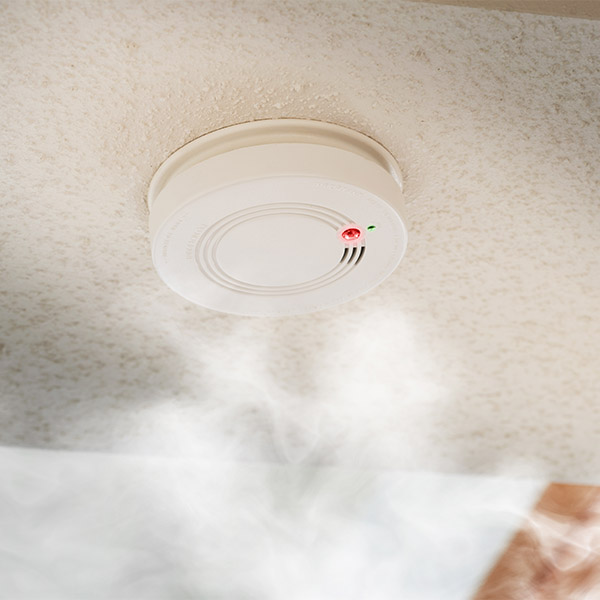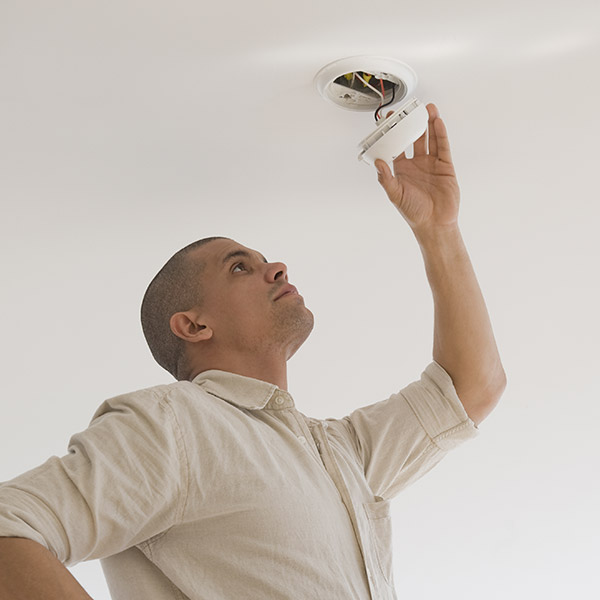The quick way to find a local Fire Alarm Installation specialist
This page has everything you’ll need to know about finding and hiring a local fire alarm specialist.
Post your job for free. Read reviews, get quotes, and see tips on hiring the right person.
Browse Fire Alarm Installation specialists
Take a look at our Fire Alarm Installation specialists profiles, read reviews and request quotes directly.
Fire alarms installation and repair – Rated People
It might just be the most important item you ever buy – your fire alarm could save your life. So, it pays to ensure it’s installed correctly.
No matter whether you opt for a top of the range “smart fire alarm” system, or the most basic model, if your alarm isn’t fitted in the right place and set up properly, it isn’t going to give you and your home the best protection.

Fire alarms will usually be located on your ceiling, in the centre of the room away from lights or any appliances that create steam. The number and location of fire alarms you need will vary according to the size and layout of your home.
The golden rule is at least one fire alarm per floor, but as fires can start anywhere you might consider installing a unit in every room (other than bathrooms) for maximum protection. The key consideration is that you can hear the alarm (should it sound) wherever you are in your house.
Cost of fire alarm installation
Including labour and alarm units
- Budget: 2 x battery alarms – £100-£150
- Medium: 2 x wired and interconnected alarms – £250-£350
- Expensive: 2 x smart home alarms – £450+
What type of fire alarms are there?
There are 4 main types of fire alarm out there, and the option you choose will depend on your home, as well as the level of protection you’re willing to pay for.
Ionisation models are very common and are often the cheapest option. They detect very small particles of smoke, alerting you before it gets too thick. However, their sensitivity makes them prone to false alarms if they’re too near the kitchen.
Optical alarms are more expensive and are particularly effective at detecting slow-burning fires – the type triggered by smouldering upholstery or overheated wires. They’re also less likely to be triggered by innocent charred toast than ionisation alarms.
Heat alarms are more advanced systems that can detect increases in temperature and don’t rely on smoke to trigger a warning. This means they are suitable for use in a kitchen, although their coverage is much smaller than smoke-detection-based units.
Finally, a new breed of smart fire alarms (including the likes of Google-owned Nest) offer you even greater peace of mind. They’re slightly more advanced smoke-detection systems that are able to automatically alert your mobile phone, as well as integrating with security and other home protection services.
It’s also possible to get alarms that detect carbon monoxide, as well as smoke or heat. You can’t see or smell carbon monoxide, so it’s advisable to get something that can detect this gas as well.
How do I look after my fire alarm?
Your fire alarm installer should be able to give you advice on how to look after your alarm. The majority of modern alarms should last between 7-10 years as standard, so replacing the batteries (or the unit itself) soon after installation won’t be necessary.
Most smoke alarms will need very little maintenance. Testing your alarm every couple of months is usually recommended (but refer to your specific model’s instructions, as they will state the exact frequency). Be sure to keep the alarm clean and free from dust or cobwebs too.
What fire alarm regulations do I need to know?
Articles 13 and 17 of the Fire Safety Order 2005 require homeowners to have fire alarms installed and properly maintained. Beyond that, the regulations aren’t as specific as you might think. The only other stipulation to be aware of is for mains-powered systems to have a battery backup.
The qualifications your tradesperson needs
There are no specific qualifications your tradesperson needs to install a fire alarm. Where electrical work is involved, your installation expert may require NICEIC (the National Inspection Council for Electrical Installation Contracting) accreditation to sign off their work.
Insurance for fire alarm installation
Your main ask of a fire alarm installer will be public liability insurance. They may only be conducting very minor work, such as drilling holes for alarm unit brackets, but it’s easy for a hidden pipe or wire to cause big headaches. Public liability insurance will keep you and your property protected against damage.
Any units your installer supplies should also carry a warranty, so ask about that too.
Questions you should ask your fire alarm installation specialist
- How many alarms would they recommend installing (and where)?
- Will they show you how the system works?
- Do the alarms they supply come with warranties?
- Can they provide public liability insurance details?

Your local fire service
It’s also worth checking in with your local fire brigade to see what free advice or services they have. Depending where you are in the UK, most local fire brigades will do a free assessment of your home, including fitting smoke alarms if yours aren’t safe enough.
Get our app for homeowners
- Send messages and get notifications from tradespeople
- Add photos to get more accurate quotes
- View tradespeople's profiles